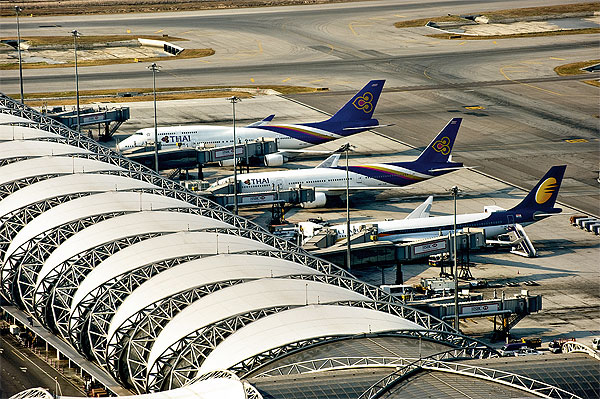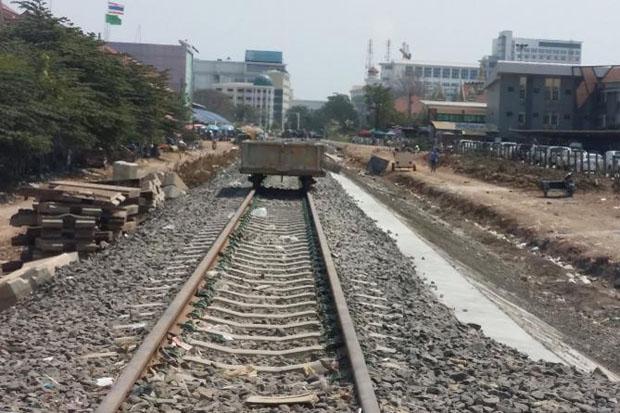
An aerial view of Ayutthaya province shows mixed farmland and residential areas. A new amendment means city plans will not have expiry dates, so developers cannot take advantage of vacuum periods to speed up their building without regulations. (Photo by Krit Promsaka Na Sakolnakorn)
The government is set to close the loophole in city plans that allows developers to exploit the vacuum period between the expiry of old plans and creation of new ones by accelerating development.
Monthon Sudprasert, director-general of the Department of Public Works and Town & Country Planning (DPT), said the department previously proposed a draft amendment of the Town Planning Act so that city plans will not have expiry dates.
“The current city plan has a loophole caused by the expiry date. Whenever an old plan expires and a new one has not been designed yet, some developers take the opportunity to seek faster construction approvals,” he said.
The current law allows city plans to last five years and be extended twice.
Prasert Taedullayasatit, president of the Thai Condominium Association, said one example of property development during the vacuum period was the expansion of modern trade nationwide.
“A city plan vacuum period also creates a barrier to entry for new investors as those who came in during the vacuum would get an advantage,” said Mr Prasert.
The DPT reported as of last week that there were 195 city plans nationwide, 93 of which have expired and are in a vacuum period.
Earlier this month, the National Legislative Assembly approved a draft amendment of the Town Planning Act. The draft is now pending the Council of State’s review before announcement in the Royal Gazette.
The draft amendment calls for more stakeholders in the city plan to become involved in planning and designing, with some of them sitting on the board for town planning.
The stakeholders are to comprise the chairmen of the chamber of commerce in each province, the Board of Investment secretary-general, the permanent secretary of the Ministry of Natural Resources and Environment, the permanent secretary of the Ministry of Agriculture and Agricultural Cooperatives, the Architect Council of Thailand and the Engineering Institute of Thailand.
Mr Prasert suggested city plans be designed in accordance with locals’ lifestyles, and mass transit be developed in line with road planning.
“In recent years more than half of homebuyers in major provinces bought condos,” he said. “There should be more floor area ratio and open space ratio to allow for more construction area, which will reduce development costs and make housing prices lower.”
Atip Bijanonda, chairman of the trade associations, construction and real estate clubs at the Thai Chamber of Commerce, said the current city plans need to be revised as expansion has no direction, increasing costs of property development and affecting manufacturing, trade, investment and the country’s competency.
“We have neither a national policymaker nor strategic agencies related to city planning because city plans are too big for only one department to be responsible for,” he said.
City planning policy also lacks integration with the private sector, local authorities and the community. In addition, city budget management does not seem to support the country’s development plan, said Mr Atip.
He urged the creation of local city planning committees whereby communities could take part in their own development.
Source: http://property.bangkokpost.com/news/621600/city-plan-vacuum-to-evaporate



